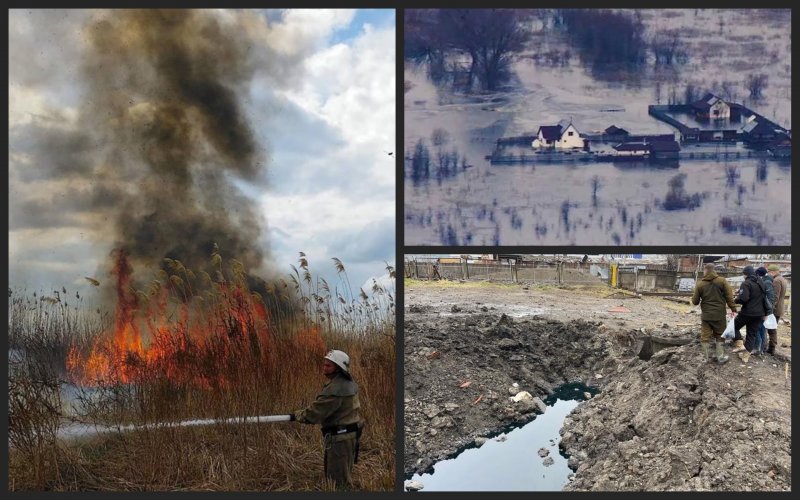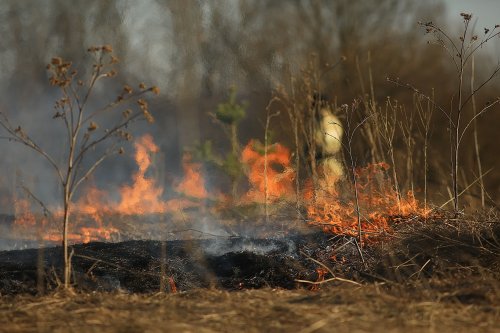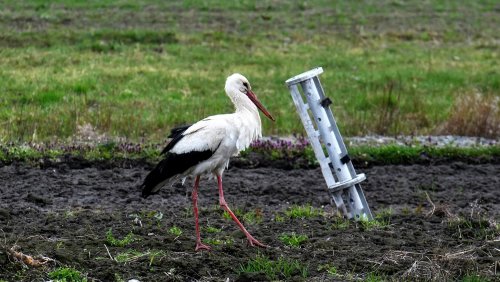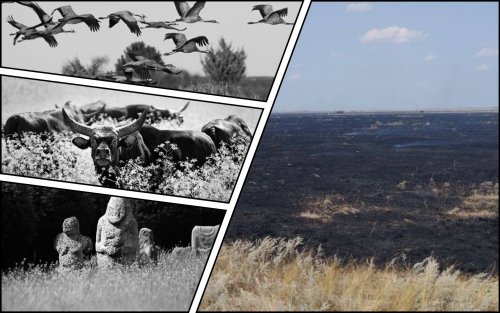Environmentalists have analyzed satellite images of areas affected by full-scale war to predict what future effects this will have on the environment and its recovery.
Currently, experts are calculating damages only from the direct damage of military aggression in the territories controlled by Ukraine, and it is possible to assess the ecological damage in the occupied territories only with the help of satellite images, Radio Liberty reports.
It is noted that it will take up to 10 years to fully assess the environmental damage. According to the data of the State Environmental Inspection, as of January 2023, during the 11 months of military aggression of the Russian Federation, the damage to Ukraine's ecology has already amounted to more than 1 trillion 743 billion hryvnias, or more than $47.6 billion.
A dam on the Irpin river, Kyiv region
The authors emphasized that in the spring of 2022, the Armed Forces of Ukraine blew up a dam on the Irpin River to impede the movement of Russian troops in the direction of Kyiv. The military involved water engineers, who calculated how much it would be necessary to open the floodgates to make the land impassable, but at the same time not to flood all the villages. The water flooded 6 villages, and the total flooded area reached 46 km2.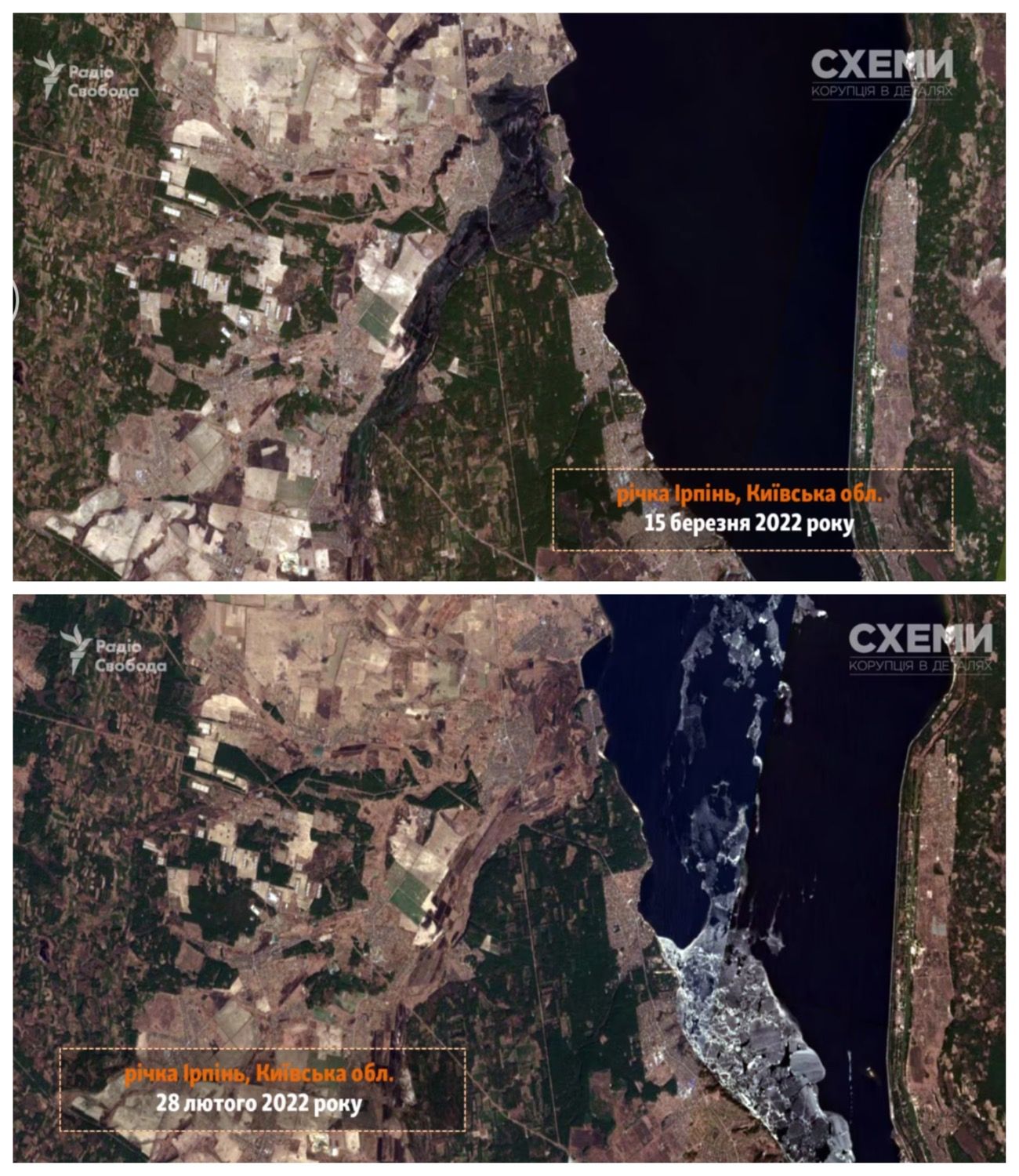
"At that time, pesticides and agrochemicals were washed from agricultural lands, construction materials from playgrounds, paints from a metalworking workshop, and heavy metals from electrical infrastructure," the material says.
Naftobaza, Lviv
The article emphasized that a missile attack on an oil refinery in Lviv on March 26 completely destroyed the oil depot, damaged containers with oil products and caused a fire. On May 5, the satellite detected oil stains around the base.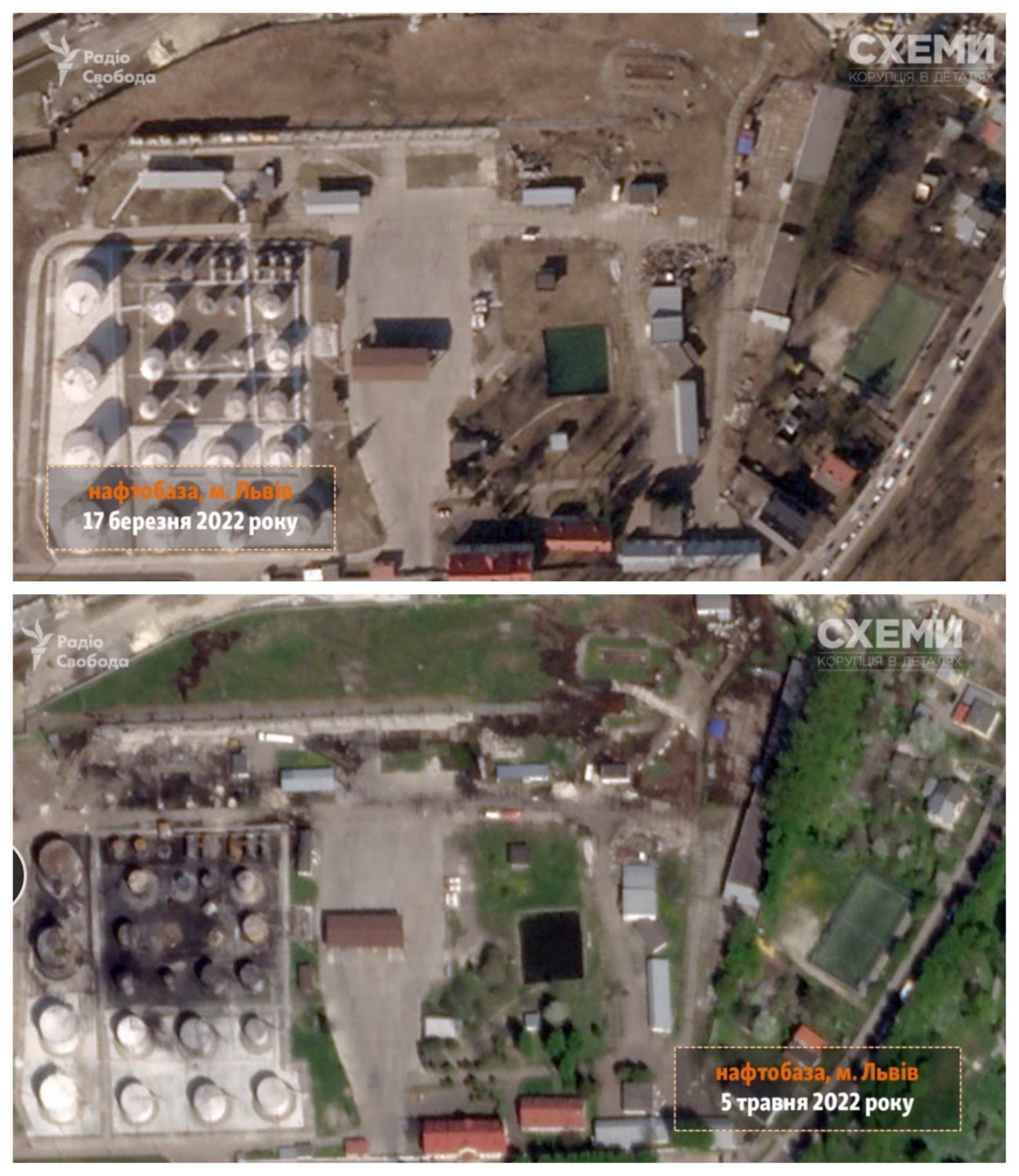
The State Environmental Inspection calls the consequences of strikes on such enterprises one of the most dangerous for the environment of Ukraine. After all, the spilled oil gets into the soil, then into the underground water, because of these processes, almost everything living in the earth dies.
Izyum forest, Kharkiv region
The article emphasized that the Izyum forest in the Kharkiv region was badly damaged due to hostilities. Most of it has burned out, and it will take decades to rebuild. The ground cover has been disturbed on the territory, in particular due to the passage of heavy equipment, which will complicate the restoration of the forest. In addition, a forest fire is a release of CO2-equivalent (greenhouse gases), which amplifies the ongoing climate change.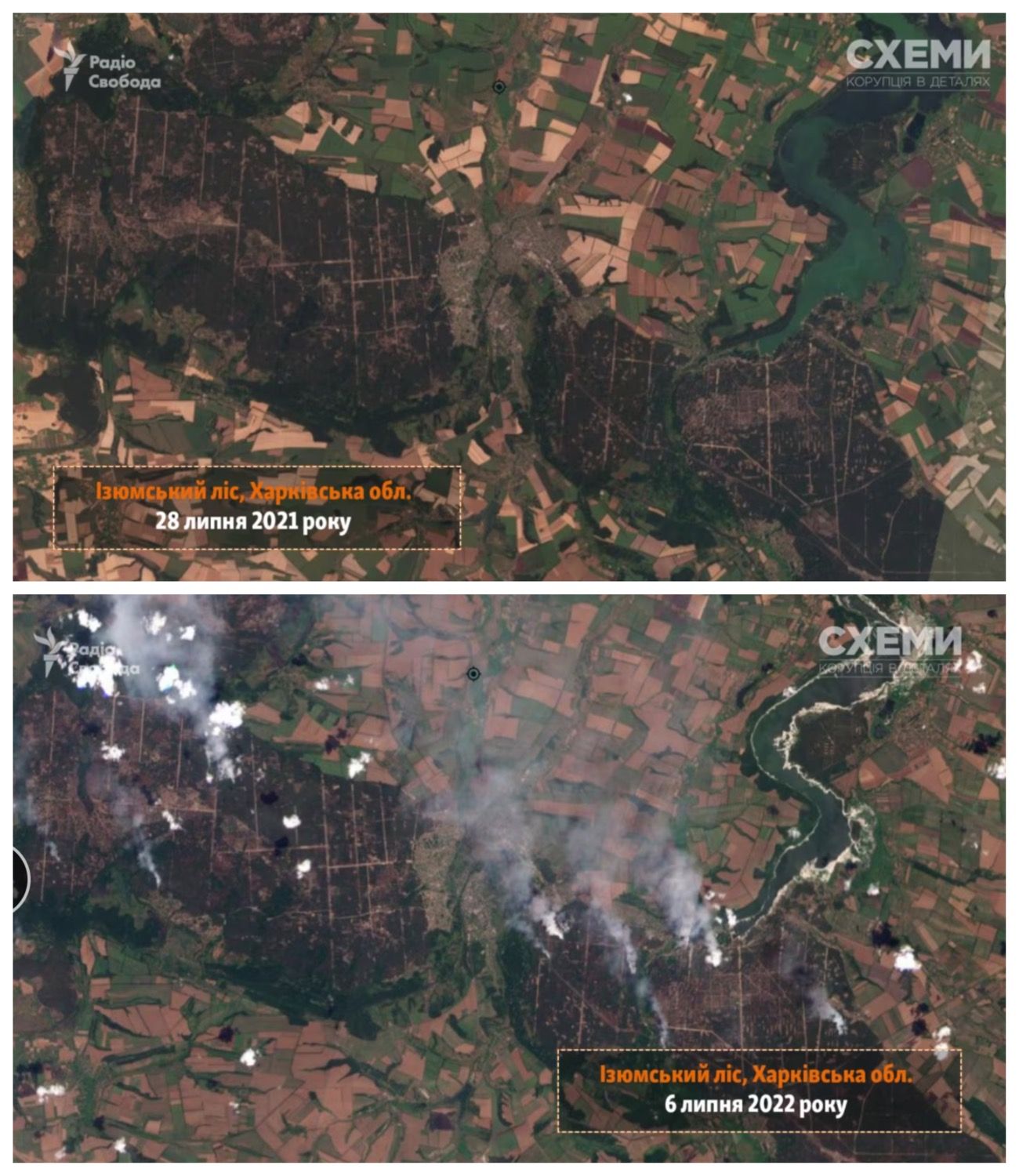
Kinburn Peninsula, Mykolaiv region
It is noted that the territory of the peninsula and spit has been fully occupied since June 2022, from which Russian troops shelled the city of Ochakiv and other settlements.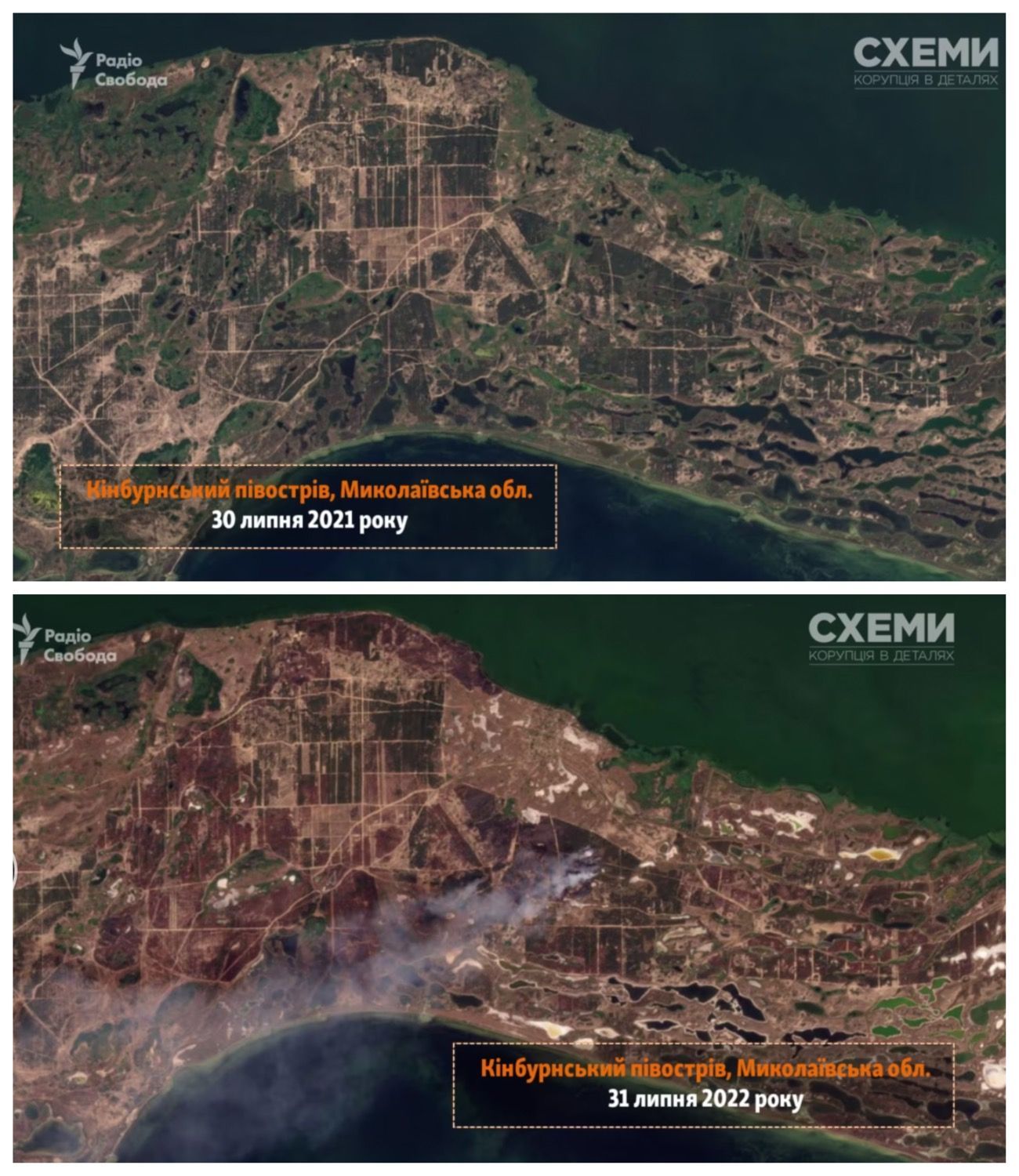
The authors emphasized that as a result of hostilities on the peninsula itself, large-scale fires repeatedly broke out, in particular in the territory of the regional landscape park "Kinburnska Kosa", the areas of "Volyzhyn forest" (belonging to the Black Sea Biosphere Reserve) and the national nature park "Biloberezhya Svyatoslav".
Zaporizhzhia NPP, Energodar
The material said that due to hostilities in August 2022, 2 fires occurred in the green zone bordering the territory of the NPP.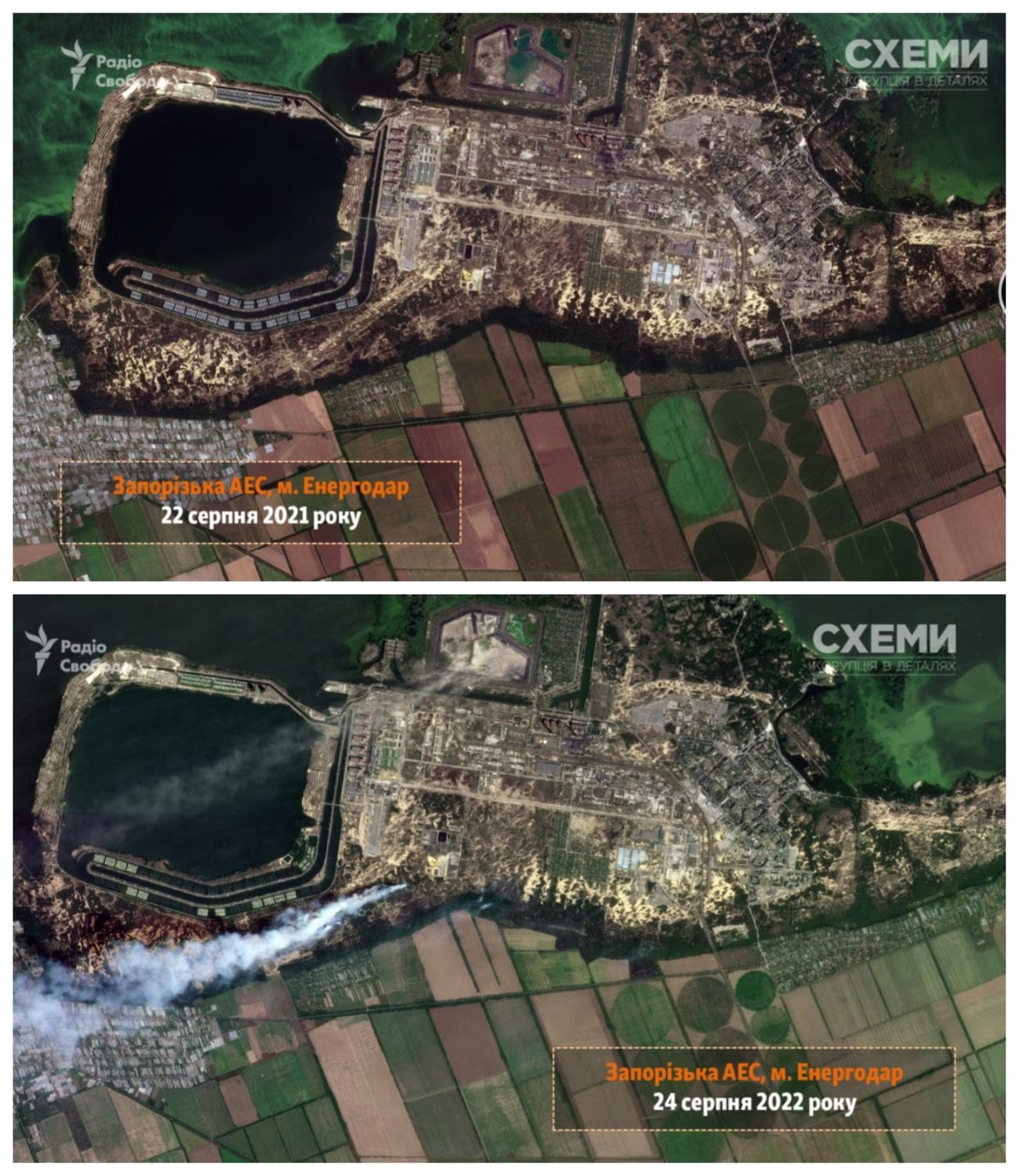
Fields of the Kherson region
The authors emphasized that in 2022, due to Russian shelling, fires often broke out in agricultural fields throughout Ukraine, in particular in the Kherson region. The consequences of numerous fires in the photo are in the form of dark spots of burnt fields.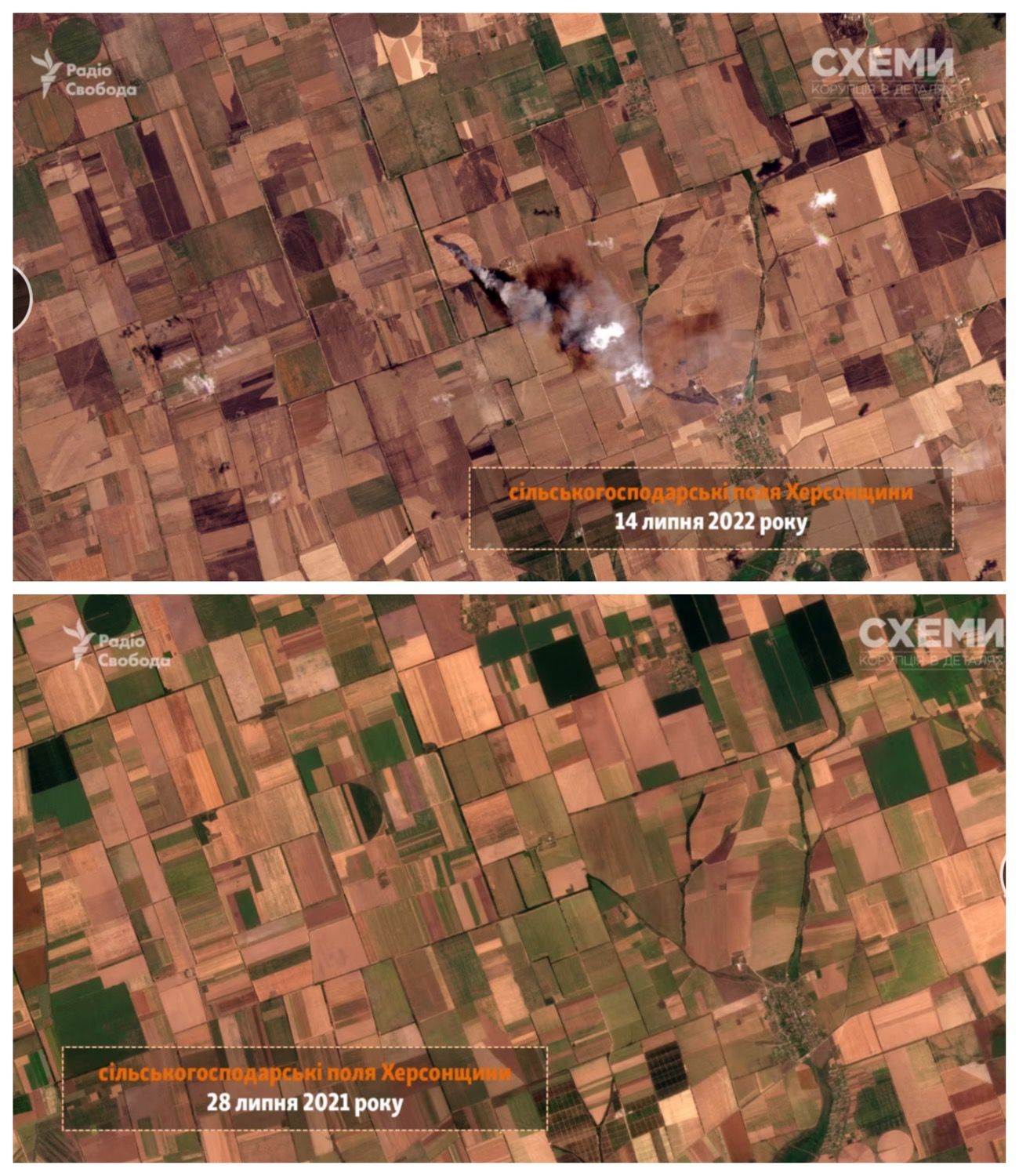
Fired areas
"Another serious problem for the environment is considered by ecologists to be the sinkholes that are formed from the hits of shells during the bombing," they emphasized.
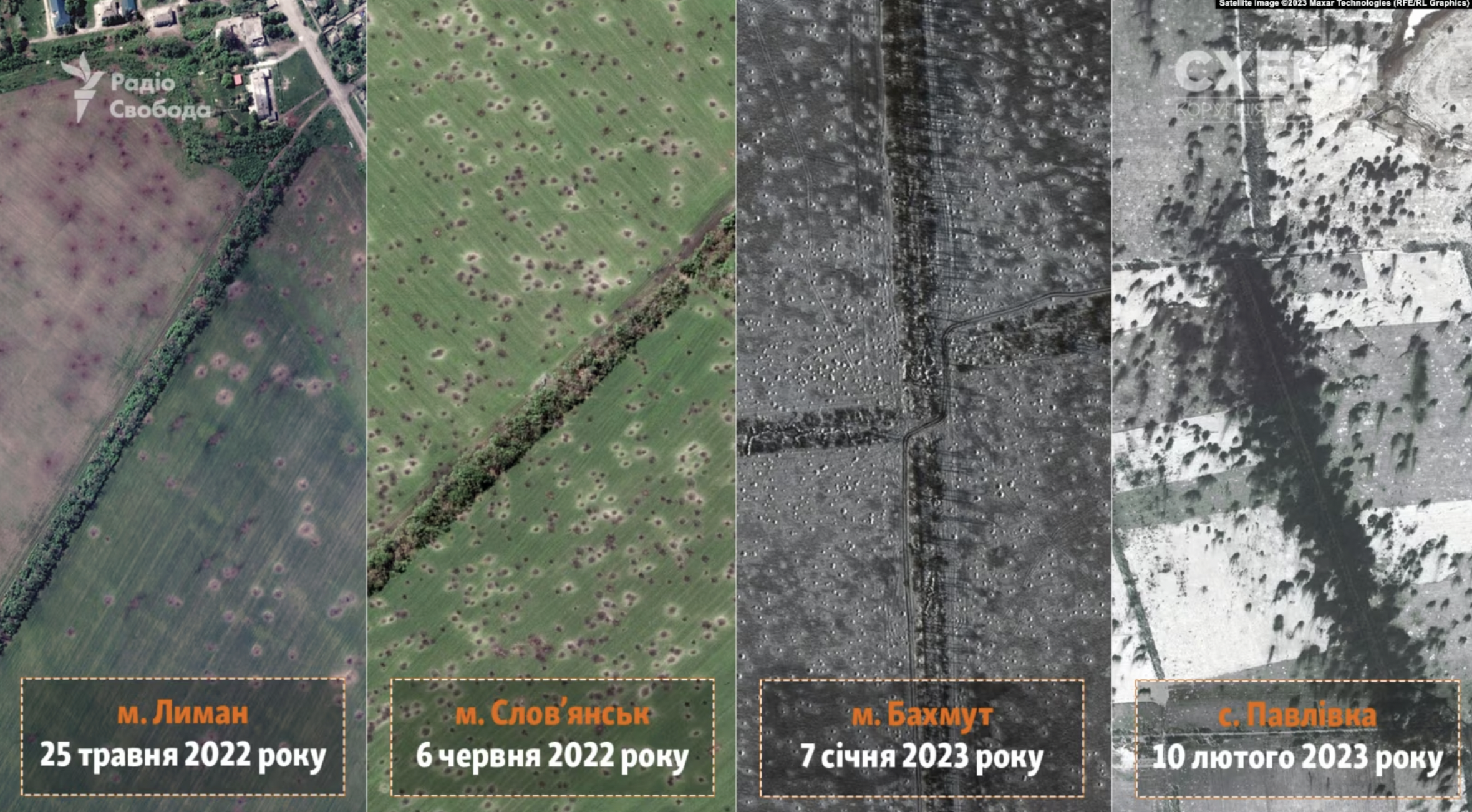
The State Inspectorate explained that polluting substances, in particular metal and chemical residues from projectiles, fall into the soil, and later - into groundwater. For example, the melange substance found in Russian rockets, when it gets into water, causes a reaction with the release of a large amount of highly toxic nitrogen oxide. That is, this process is extremely harmful to the soil and all living things in it.
Earlier, EcoPolitic wrote, that a preliminary assessment of the impact of the war in Ukraine on the ecological situation showed that the war is literally toxic, and the next generations will live "with a toxic legacy".
As EcoPolitic previously reported, the war in Ukraine may lead to an ecological disaster that will affect Europe and Asia.

